|
short stories
|
poetry
|
|
short stories
|
poetry
|
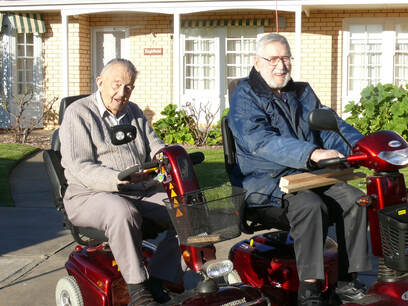 Activities that entertain are not the answer. Activities that involve and stimulation are the answer Activities that entertain are not the answer. Activities that involve and stimulation are the answer The Ivory Tower of Professionalism "Leadership is about empathy. It's about having the ability to relate to and connect with people to inspire and empower their lives," said Oprah Winfrey. Oprah Winfrey became famous for her talk show; she also became wealthy. Her secret? She made every person in the audience feel and believe that she understood and walked in their shoes. Oprah had learnt the secret of empathy, identifying with everyone in her audience. Oprah's talk show was professional; she made sure she looked like a god and the giver of all things good. Love her or hate her, she was a success. She practiced empathy, and it paid off. "I think professionalism is important, and professionalism means you get paid." wrote Erica Jong. 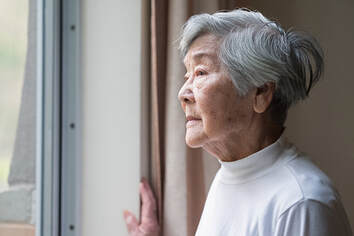 Isolation and loneliness and depression the enemy of old age. Medication isn't the answer Isolation and loneliness and depression the enemy of old age. Medication isn't the answer SEEKING PROFESSIONALISM That is why people study hard, work hard, seek to climb the ladder to professionalism. When they have become professional; Where are they? Who are they? Have they become people who are so far above suffering humanity that they are unconnected? They are professional machines; they do their job, become financially secure, and live good lives. They may have acquired a mansion to live in but is it their ivory tower where they can distance themselves from humanity and its pain. Professionalism allows people to sit in their offices and issue instructions on doing the job. Governments created protocols for the treatment of the aged and ill. Shortcuts are needed if there isn't enough time, and empathetic care is expendable in getting the task done. That might be acceptable in other trades, but when dealing with suffering humanity, we cannot allot time and expect to take shortcuts when the old and the ill require mental and physical care. For a true professional, it is tough to connect with hurting, aged, ill and needy people. They can justify themselves by saying I am doing my job and ignore the needy. Professionalism – educated professionalism can retire into the ivory tower of professionalism and ignore the needs of the people under their care. 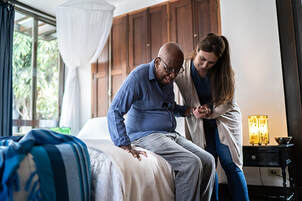 Professionalism causes us to sit in our office and issue instructions how to alleviate human suffering. Professionalism causes us to sit in our office and issue instructions how to alleviate human suffering. WHEN PLANS GO ASTRAY When we are young, we have dreams and aspirations of what we will be and do. The world is our oyster. So we should. If we didn't dream, we would not invent better lifestyles, progress would stagnate, and our civilisation would collapse. Humanity must dream. How do we reach our goals, dreams, profession, and successful career? Do we believe there is one set of rules for us and another for those in our care? Do we think we can go through life only doing what we get paid to do? Maybe we are doing the job just for the money, and the respect and empathy needed doesn't matter. If so, we need to think very carefully about our career path. Youth becomes adulthood. Adulthood becomes middle age, retirement follows, and old age is a reality. People plan for old age – where they will be and how they will do it. What if life has stripped them of the ability to control their bodily functions? Their ability to connect with those around them is impaired? Their sight? Their hearing? Their movement? What then? Old age is inevitable, and no matter how we plan for it, our bodies will weaken, ill-health follow us. We, the carers and professionals, will be dependent on someone else. What will be our attitude then? 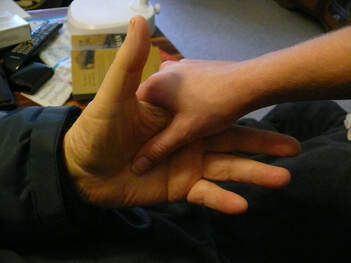 The need for a helping hand The need for a helping hand JUST TOO OLD The cry of the aged is 'I am helpless, I am dependent on others, the nurses, the carers.' The aged are in care not because they want to be, and they are now dependent on Professional carers, society and governments for their survival. So why treat them as if their vulnerability is their fault. Who inspires in the times of confusion? Empathizes with them? The professional carers living the good life in their ivory towers, far removed from the struggling 'oldies', say we will help you; it is an empty promise. They move on to the next task, forget about the need they have just shelved. They never keep their promise.  Learning how to care for others is crucial for our personal development Learning how to care for others is crucial for our personal development SO THAT'S YOUR ATTITUDE When we are young, ideals count; we need affirmation that we are essential. We are concerned with our 'rights'; life doesn't always respect our' rights' career-wise or professional-wise. Life will ask more of us at one time or another. The professional or career person we become will depend on how we face the curveball that life throws at us. .If we seek employment in the aged care or health industry, we will not be able to do just our job, and we will have to give of ourselves, and empathy is requisite. We will need to walk in the shoes of those for whom we care. If we are in the caring profession, we cannot refuse to do things we don't get paid. For instance, leaving an older adult sitting in their faeces for even a quarter of an hour is neglect. You say, 'my shift has ended; I don't need to clean them up; the next person can do that.' What would be your attitude if you were in their place? Human beings may be aged, but they feel shame. When their body has let them down, and they cannot control their bodily functions anymore, another has to clean them. To leave the toilet in a mess because it is not our job is neglect. Would we like to sit on a soiled toilet seat? Would we like to stand and walk in a puddle of urine? These are the not so noble moments in the aged care profession. To walk in another's shoes, feel with them, empathise with them, care for them, and respect their rights is to keep them clean regardless of our shift end. Empathy might be noble, but it is arduous work and a necessary part of the aged care system. There are stressful moments in our lives, and we say things we regret and later for which we apologise. The aged person cannot always express themselves, nor do they always understand the jargon used by the carers. They may be hard of hearing. So what if they snap? It is our' right to be spoken to civilly.' So we enforce our 'rights' and demand 'respect'. When implementing our rights, remember that the person we deal with has their rights. They have a right to be cared for and respected as humans, not as a job opportunity or as a meal ticket to maintain their lifestyle. To quote Winston Churchill, 'Attitude is a little thing that makes a big difference.' 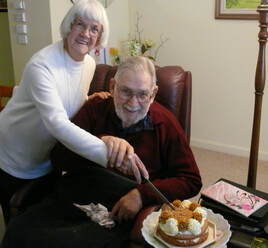 Sixty eighth wedding Anniversary Sixty eighth wedding Anniversary EMPATHY 'Looking at various means of developing compassion, I think empathy is an important factor: the ability to appreciate other's suffering.' Dalai Lama For instance, Dawn Jennings, Inspiring SA Women's Award Winner. Dawn is a compassionate devoted, and selfless carer who has cared for children since the early 1990s. Dawn has fostered more than 90 babies from her home in Modbury Heights while raising four of her own and is the author of many books. Dawn has gone beyond just doing her job; she has not insisted on her 'rights' but has walked in another's shoes. Dawn has received a high award, and rightly so, but she didn't foster those babies for the Award. The Award came because of the sleepless nights, the wiped bottoms, crying, fretful children. Did Dawn volunteer for the job of Foster Mum for the money? She fostered the children to give them life. Professionals, carers, and bosses refuse to hide in their ivory towers; they refuse to isolate themselves from the populace. They bend and identify with human needs. They use their professionalism as a gift to help rather than a 'right' or protection. The empathetic professionals are willing to go beyond the call of duty. They are the true professionals and carers, and bosses. They inspire and empower those around them regardless of age or circumstances. John Steinbeck says, 'You can only understand people if you feel them in yourself.'
Comments
|
Details
Author: "You can always edit a bad page. You can’t edit a blank page" - Jodi Picoult
|